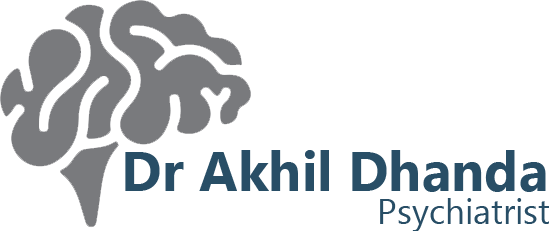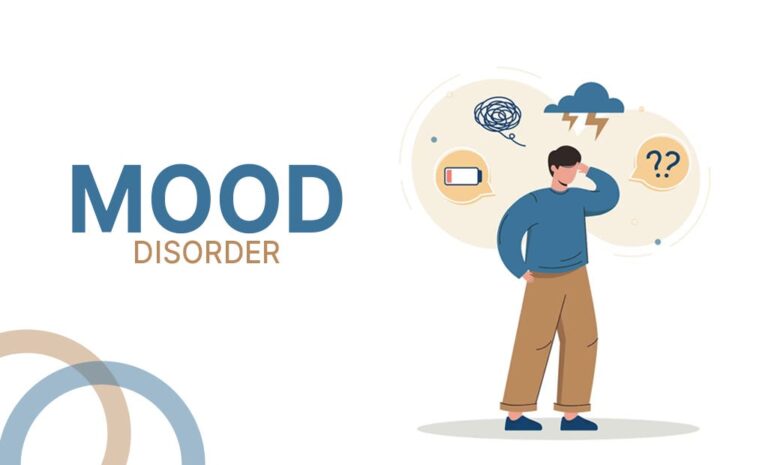Personalized Medicine In Mood Disorders: Treatment For Better Outcomes
There is no one-size-fits-all solution when it comes to mental health. This axiom holds especially true for mood disorders, where the complexity of individual experiences, genetic predispositions, and environmental factors necessitates a more personalized approach to treatment. In recent years, the concept of personalized medicine has gained momentum, offering a promising avenue for improving outcomes in mood disorder management. By tailoring treatments to the unique characteristics of each patient, personalized medicine holds the potential to revolutionize how we understand and address mood disorders. This article delves into the principles, advancements, and implications of personalized medicine in the context of mood disorders, aiming to shed light on its transformative impact on mental health care.
https://www.youtube.com/@akhildhanda8867
Understanding Personalized Medicine
Personalized medicine, also known as precision medicine or individualized medicine, involves customizing medical interventions to the specific attributes of each patient. Rather than relying on generalized treatment protocols, personalized medicine takes into account genetic makeup, biomarkers, environmental influences, and lifestyle factors to design targeted therapeutic strategies. The central tenet of personalized medicine is to optimize efficacy and minimize adverse effects by tailoring interventions to the individual’s unique biology and circumstances.
In the context of mood disorders such as depression, bipolar disorder, and anxiety disorders, personalized medicine recognizes the heterogeneity of symptoms, etiological factors, and treatment responses among patients. While traditional approaches often adopt a trial-and-error method in prescribing antidepressants or mood stabilizers, personalized medicine seeks to identify predictors of treatment response upfront, enabling clinicians to make informed decisions from the outset.
Advancements in Personalized Medicine
Advances in genetics and neuroscience have paved the way for the development of personalized approaches to mood disorder treatment. Genetic studies have identified various genetic markers associated with mood disorders, shedding light on the biological underpinnings of these conditions. For instance, genome-wide association studies (GWAS) have identified gene variants implicated in antidepressant response, treatment resistance, and side effects. By integrating genetic information into clinical decision-making, clinicians can better predict an individual’s likelihood of responding to specific medications, thereby optimizing treatment selection and dosing.
Moreover, the advent of pharmacogenomics—the study of how genetic variations influence drug response—has revolutionized psychiatric practice. Pharmacogenomic testing allows clinicians to assess an individual’s genetic profile to predict their response to psychotropic medications and identify potential adverse reactions. By analyzing genetic variants in drug-metabolizing enzymes, neurotransmitter receptors, and transporters, pharmacogenomic testing helps tailor medication regimens to maximize efficacy while minimizing side effects.
Beyond genetics, advancements in neuroimaging techniques have provided insights into the neural correlates of mood disorders and treatment responses. Functional magnetic resonance imaging (fMRI), positron emission tomography (PET), and electroencephalography (EEG) enable researchers to visualize brain activity patterns associated with different mood states and treatment modalities. By leveraging neuroimaging biomarkers, clinicians can personalize treatment approaches based on an individual’s neurobiological profile, optimizing the likelihood of therapeutic success.
Implications for Treatment
The integration of personalized medicine into clinical practice holds profound implications for the treatment of mood disorders. By tailoring interventions to individual characteristics, clinicians can enhance treatment outcomes, reduce the burden of side effects, and expedite recovery. Here are some key implications of personalized medicine in mood disorder treatment:
- Targeted Medication Selection: Rather than adopting a trial-and-error approach, personalized medicine enables clinicians to select psychotropic medications based on an individual’s genetic profile and pharmacogenomic testing results. By identifying genetic predictors of treatment response and adverse reactions, clinicians can prescribe medications that are more likely to be effective and well-tolerated, thereby optimizing therapeutic outcomes.
- Dose Optimization: Personalized medicine also facilitates dose optimization by taking into account factors such as drug metabolism, receptor sensitivity, and genetic variations in drug response pathways. By adjusting medication dosages according to an individual’s pharmacogenomic profile, clinicians can achieve therapeutic levels while minimizing the risk of toxicity or treatment resistance.
- Treatment Resistance Management: For individuals with treatment-resistant mood disorders, personalized medicine offers new avenues for intervention. By identifying genetic markers associated with treatment resistance, clinicians can explore alternative treatment modalities such as augmentation strategies, combination therapies, or novel pharmacological agents targeting specific biological pathways implicated in mood regulation.
- Psychotherapy Tailoring: In addition to pharmacological interventions, personalized medicine extends to psychotherapeutic approaches as well. By considering factors such as personality traits, cognitive styles, and interpersonal dynamics, clinicians can tailor psychotherapy modalities (e.g., cognitive-behavioral therapy, interpersonal therapy) to better meet the individual needs of patients with mood disorders. This personalized approach enhances treatment engagement, efficacy, and long-term outcomes.
Challenges and Future Directions
Despite its promise, personalized medicine for mood disorders faces several challenges and limitations. Implementation barriers, including cost, accessibility, and clinician training, pose significant hurdles to widespread adoption. Additionally, the complexity of mood disorders, influenced by multifactorial interactions between genetic, environmental, and psychosocial factors, presents challenges in identifying robust predictors of treatment response.
Moving forward, future research endeavors should focus on overcoming these challenges and advancing the field of personalized medicine in mood disorder treatment. Large-scale collaborative initiatives, integrating multi-omics data (e.g., genomics, transcriptomics, proteomics) with clinical outcomes, hold promise for identifying more robust biomarkers of treatment response and refining predictive algorithms. Moreover, efforts to enhance clinician education and improve the integration of personalized medicine into clinical practice are essential for realizing its full potential in transforming mental health care.
Conclusion
Personalized medicine represents a paradigm shift in the treatment of mood disorders, offering a tailored approach that acknowledges the diverse biological and psychological factors underlying these conditions. By leveraging genetic, neurobiological, and psychosocial data, personalized medicine holds the promise of improving treatment outcomes, reducing the burden of illness, and optimizing patient care. As research continues to advance and technologies evolve, personalized medicine stands poised to revolutionize how we understand, diagnose, and treat mood disorders, paving the way for a more effective and personalized approach to mental health care.
For any further queries, Plz visit psychiatristdrakhildhanda.com or you can check our social media accounts, Facebook, Instagram







